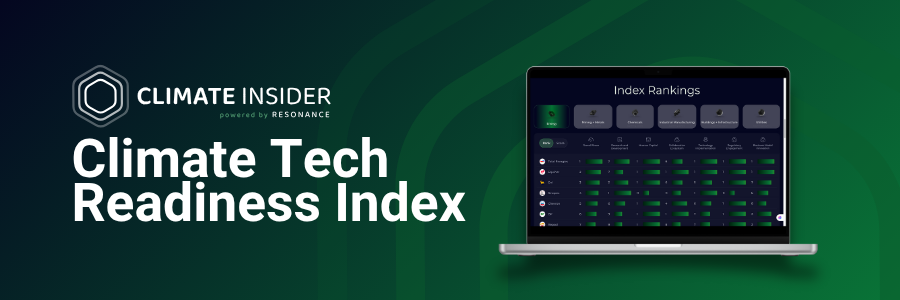At COP29 in Baku, Azerbaijan, Multilateral Development Banks (MDBs) unveiled their first-ever joint report on the circular economy, The Circular Economy in Motion. This landmark publication highlights 20 projects financed by MDBs, spanning plastics, critical raw materials, textiles, food, electronic waste, and more. The report underscores the growing global momentum toward circular practices, particularly in developing countries, and provides actionable insights for governments, businesses, and financial institutions to accelerate this transition.
The Growing Reach of the Circular Economy
The report challenges the perception that circular economy practices are confined to high-income countries. Instead, it documents significant adoption across middle- and low-income nations, even amid uneven policy frameworks. For example, the African Development Bank (AfDB) is leveraging its Africa Circular Economy Facility (ACEF) to create youth employment opportunities and ecological benefits through regenerative practices and efficient resource use.
Dr. Anthony Nyong, AfDB’s Director for Climate Change and Green Growth, highlighted the stakes: “The African Development Bank acknowledges the transformative potential of the circular economy to generate youth employment and ecological benefits. Through ACEF, the Bank is committed to empowering African countries to harness the numerous opportunities of the transition to circularity.”
MDBs’ Role in Financing and Advisory Services
As the report illustrates, MDBs provide a comprehensive range of support mechanisms for circular economy projects. These include tailored loans, private-sector investments, government advisory services, and financial sector backing. The breadth of these offerings reflects MDBs’ commitment to fostering innovation and building resilient, resource-efficient economies.

Gianpiero Nacci, Director of Sustainable Business and Infrastructure at the EBRD, emphasized the growing collaboration among MDBs: “This report is a testament to the growing collaboration among MDBs, now extending into the circular economy. At the EBRD, we are committed to driving innovation in circular solutions across our regions.”
Similarly, the European Investment Bank (EIB) is advancing bold partnerships to scale impactful circular economy solutions globally. Ambroise Fayolle, EIB Vice-President, noted, “The circular economy represents a powerful shift, enabling growth within our planet’s limits. It calls for bold partnerships and shared knowledge to drive and scale up impactful solutions.”
Key Sectors: Plastics, Textiles, and Critical Raw Materials
The 20 case studies detailed in the report span critical sectors where circular economy interventions can yield significant economic and environmental benefits:
- Plastics: Projects emphasize waste reduction, recycling innovations, and the development of biodegradable alternatives.
- Textiles: Circular solutions focus on reducing textile waste through design innovations and recycling initiatives.
- Critical Raw Materials: Efforts to recover and recycle rare earth elements and other critical materials are essential for reducing resource dependency.
“The circular economy provides a useful framework and holistic solutions in tackling the triple planetary crises of biodiversity loss, pollution, and climate change,” said Yoko Watanabe, Director of Environment for ADB’s Climate Change and Sustainable Development Department.
Private Sector and Financial Institutions: Key Drivers of Circularity
The report highlights the essential role of private-sector engagement and the financial sector in accelerating the circular economy. However, a conducive regulatory environment is necessary to fully unlock these opportunities.
Valerie Hickey, Global Director for Environment at the World Bank, emphasized this point: “We can no longer maintain a livable planet with linear economies that grow now and clean up later. Moving toward more circular approaches can support jobs and competitiveness for countries – but this requires better regulations.”
Financial institutions are also pivotal in driving this transition. Gabriel Azevedo, Chief Strategy Officer at IDB Invest, stressed, “The financial sector is pivotal in driving the transition to a circular economy by channeling investments and creating innovative financial instruments that support circular business models.”
Cities as Catalysts for Innovation
Urban areas play a crucial role in incubating innovation and driving action on circular economy initiatives. By fostering collaborations between governments, private enterprises, and financial institutions, cities can create scalable models for resource efficiency and waste reduction.
“Cities provide the ideal testing ground for circular solutions, where public-private partnerships can thrive and deliver measurable results,” noted the report.
Opportunities for Vulnerable Populations
The MDBs’ projects demonstrate a commitment to inclusivity, ensuring that vulnerable populations and informal sectors are actively involved and supported. Circular economy interventions have the potential to create equitable economic opportunities, particularly in developing countries.
As the report highlights, supporting the informal sector in waste management and resource recovery is essential to building a just transition.
Climate Insider Analysis
The circular economy offers a transformative pathway to address global challenges, from reducing resource dependency to mitigating climate change impacts. The insights from the MDBs’ report reveal key areas of progress and opportunity:
- Global Adoption: Circular economy investments are no longer limited to high-income countries, with middle- and low-income nations making strides despite policy gaps.
- Sectoral Focus: Targeting high-impact sectors such as plastics, textiles, and critical raw materials amplifies the economic and environmental benefits of circular practices.
- Private Sector Leadership: Businesses are recognizing the value of circularity for reducing costs, derisking supply chains, and creating competitive advantages.
- Financial Sector Engagement: Innovative financing mechanisms are crucial for scaling circular solutions, but the sector needs clearer guidance to seize these opportunities.
- Inclusive Growth: Ensuring vulnerable populations benefit from the circular economy transition is critical for equitable and sustainable development.
As Ambroise Fayolle aptly stated, “The circular economy represents a powerful shift, enabling growth within our planet’s limits.” The MDBs’ collaborative efforts provide a blueprint for advancing this shift on a global scale. The time to embrace these solutions is now.
Featured Image: Credit: The Circular Economy in Motion Report








